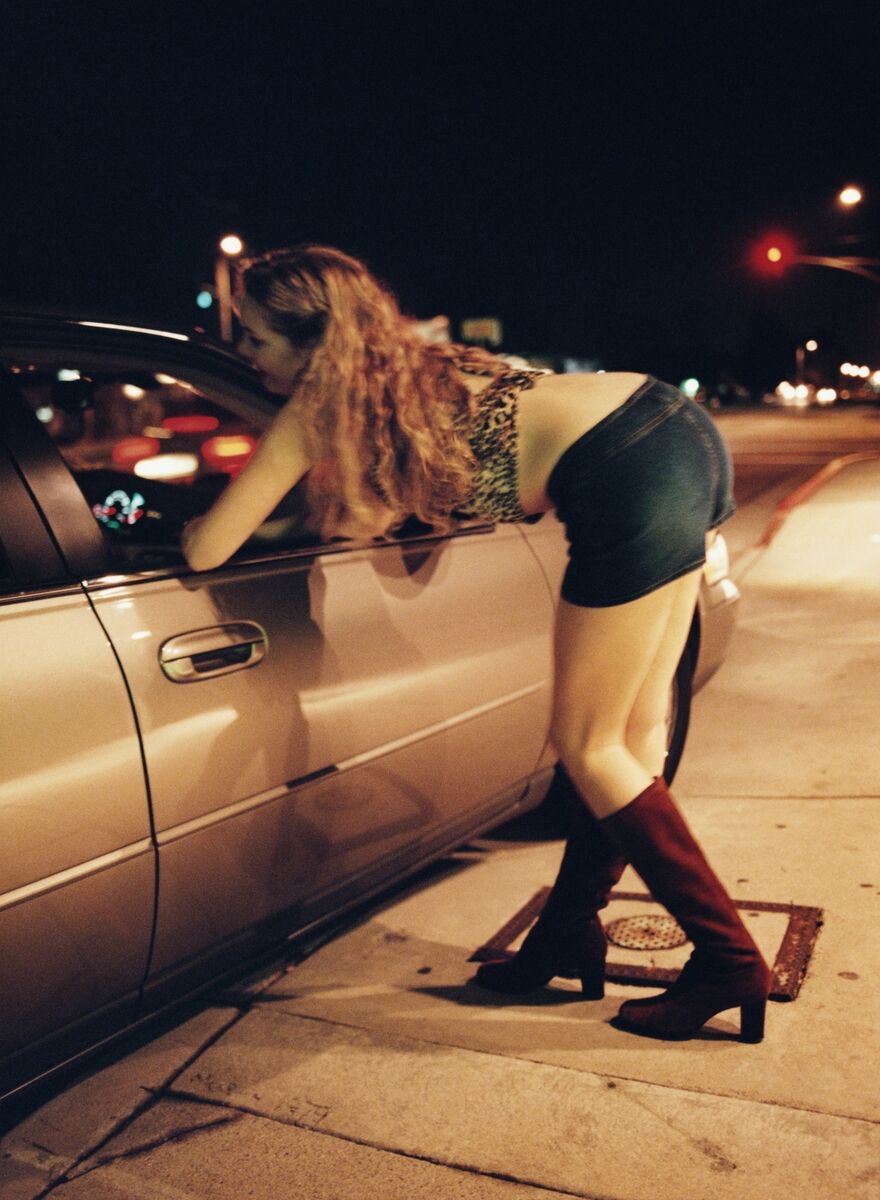'I wanted a better quality of life': The women selling sex all over Ireland

Thousands of sex workers are offering their services across Irish villages, towns and cities on websites and social media platforms this week. File picture
“Can’t wait to meet you, let me be your new addiction, promise I’ll be good for your health,” promises the advertiser, offering bank holiday fun for the recent Easter bank holiday weekend.
She is one of thousands of sex workers offering their services across Irish villages, towns and cities on websites and social media platforms this week.
The 26-year-old describes herself as a gorgeous woman who does not work full time “as I am in college during the week and share accom with others".
"I get accom myself one or two days most weekends while in Cork City. As this is not a full-time occupation and something I do on the side for fun and I genuinely enjoy doing, I do not like to meet a lot of people so I can give quality time to those I do meet," she says.
She adds: “If you are looking for a more conveyor-belt type of service then better to look elsewhere.”
She also says she uses a “hotel or Airbnb” when meeting a client for the first time.
She tells the she started out as a “sugar baby” — the term given for a young woman who engages in a romantic-type relationship with an older man who gives money or gifts in exchange for sex or companionship.

“I decided to get into the industry because I was curious how the other side live. I wanted a better life, to make a better quality life for me and my future family and it’s impossible with wages in Ireland. I started off sugar dating and it escalated from there. It was a gateway, I guess, and normalised being a full-on high-end escort,” she says.
"Being a sugar baby, you can be taken advantage of more as there isn’t time limits, etc and people know that so that transition [to sex work] was a business decision and cut out the bullshit.
“I have regular clients who treat me very well. I only see regular clients now and they are like friends. We catch up and chat and it’s a very mature relationship. I have strict procedures when I first meet people and it is helpful to weed out bad-intentioned people.”
When asked if she has fears about being targeted for attacks including robbery, she says: “I’m not nervous about being robbed so much. I always meet in public places and get photos beforehand and if the person doesn’t match the photo, I’d be gone.
"In my mind it’s good to know that I will always have a photo on record I can give to the police if anything was to happen. Thankfully, it never has.
“I only do this some weekends and not full time but generally the game is safe and well as long as you are smart and aware. Having regulars is definitely a huge help in that process and knowing what to expect.”
She is speaking a year on from the death of Geila Ibram on April 4 last year. She was a Romanian sex worker whose body was found in a residence on Dock Road in Limerick. A man has been charged with her murder.
Spokeswoman for the Sex Workers Alliance of Ireland Linda Kavanagh says: “There are so many emotions around this anniversary.”
She says sex workers have only recently learned through a media report that a predator who had previously targeted street workers in the industry had returned to Dublin and is the subject of a Garda alert.
“We and the community learned that through the media and that is what kind of happened exactly with Geila as well. Part of the law is that there are supposed to be sex work liaison officers.
"There is a phone number and we have been trying to establish a link with that number. We are trying to establish a relationship but the media know about this before we do. And they still have not contacted us about it.”
She says while gardaí appear to have a warning system in place, given the media report about the suspected predator, “they are not using that warning system to warn the vulnerable population”.
"It is a stark reminder that nobody really cares about sex workers in Ireland. It feels very bleak for those of us operating in this environment at the moment. It feels like there is no improvement, or no seeking to improve it either. "
A Swedish escort who is based in Meath says she is very careful and describes herself as an independent worker in the industry. She says: “I screen who I see.”

She says she has a list of questions she asks clients before agreeing to meet them. And she adds she never sends nude images of herself if asked for them: “If they persist, they have no respect, and a meeting is out of the question.”
She also refuses to meet anyone who tries to negotiate a price with her, instead of agreeing to the €200 per hour fee, adding: “My body, my choice.”
She says she has been working in the industry for less than a year and is planning to leave and build a profile on the OnlyFans website.
She has been living in Ireland for a decade and says her parents, who are wealthy, are not aware of what their daughter does for a living.
She has qualifications in IT, which she says she will use for OnlyFans, a website frequently used for selling intimate videos and images to fans.
She says she has more free time working in the industry on her own terms, explaining: “I’m my own boss. Probably if I wasn’t so lazy, I could be a boss in my field. I’m pretty bossy. But I am lazy and it’s too much work, plus I hate people."
While those who respond to requests for interviews are generally independent escorts who claim to enjoy the freedom and money their job gives them, many others do not engage with such requests and appear to have had less of a choice in their line of work.
Some become sex workers because they need money to fund an addiction, or because they have no other means of making money — or because they have been trafficked into the industry and are answerable to a pimp.
Ms Kavanagh says: “We have definitely dealt with people and continue to deal with people who have been trafficked and in exploitative situations.
"The majority of outdoor workers in Ireland are Irish women in addiction and homelessness. Tomorrow, we could get them all off the street if we gave them free and safe drugs but nobody calls for that.
"Instead, what those women get is policing and criminalisation and stigma and judgement. They do not get what they actually need.”
Building a community of sex workers in Ireland is difficult, according to Ms Kavanagh, because of legislation governing sex work here.
“To operate legally, you have to work on your own. The vast majority of them want to work with another worker for safety and I know there are people coming to us who work in brothels but very few of them would admit it because it would be admitting that they are breaking the law.”
Under the Sexual Offences Act 2017, those who offer their services as a prostitute are no longer committing an offence.
Part 4 of the legislation introduced two new offences — the payment for sexual activity with a prostitute, and paying for sexual activity with a trafficked person.
It also significantly increased penalties for brothel keeping — two or more sex workers selling sexual services from the same premises — to a €5,000 fine or a jail term of up to 12 months.
Under the legislation, a provision was also included for a review of the measures after three years. The terms of reference were published in July 2020.
The review is to include an assessment of the impact of the act on the welfare of those who engage in sexual activity for payment.
Earlier this month, it emerged through a reply from Justice Minister Helen McEntee to a parliamentary question put down by Independent TD Catherine Connolly that the department plans to finalise the review internally.
This is despite advertising last autumn for a replacement for the lead researcher on the project, Maura Butler, who stood down last summer.
Ms Kavanagh says: “We need this to be done right. We made our submission in 2020, and we spoke to Maura Butler in 2021. The data is not up to date anymore but also there is a larger issue here now, especially with the latest piece of information which Catherine Connolly got from Helen McEntee about how now the department is going to do this all in-house.
"This should put the fear of God in every NGO and civil society body that supports marginalised people because this just means now that any review of any law on policy can be done in-house.
“Where reform has been needed and wanted, the Government has a strong record of bringing in independent experts. No matter how anyone feels about sex work, this should create fear because it is unacceptable for the Department of Justice to review itself.
“This is not good enough. This is a matter of principle, a matter of good governance. It sets a bad precedent that could then be used in the future for any review and any marginalised community and that is really scary.

"Sex workers have always been canaries in the coal mine. If the Department of Justice and the Government get away with this now, who knows who else’s rights are going to be trampled on.
“This was built into the law so that sex workers could have a say on this law. Even if takes another four years, it is of vital importance. It was built in that there should be meaningful engagement with the community and we do not see that that has happened so we are calling for it to be scrapped and started again.”
The Sex Workers Alliance of Ireland says it has sought a meeting with Department of Justice officials to discuss the review amid concerns it cannot be independent when being carried out internally in the department.
“Current sex workers are the experts in the law," Ms Kavanagh says. These are the people who are working under these conditions. They should be the people who are consulted but it is not easy. This is a population that doesn’t want to be found so real effort has to be put in and I don’t see that this has happened.”
A spokesman for the Department of Justice said: “It is the minister’s intention to bring this work to a conclusion as soon as possible. There is no plan to start the process all over again. Building on the work already undertaken by the previous study lead, the department’s data and research unit is expected to complete this review by Q3, as previously outlined.
"All submissions received by the study lead, including those from organisations working with persons engaged in prostitution and with victims of human trafficking will be considered by the data and research unit in bringing this review to a conclusion.”
Meanwhile, a spokeswoman for An Garda Siochána said the organisation “assures any person involved in the sex trade that An Garda Síochána is here to listen, and will treat any report of a crime against them very seriously and sensitively — whether it is assault, theft or criminality of other kind”.
“An Garda Síochána, through the Organised Prostitution Investigation Unit (OPIU), Garda National Protective Services Bureau (GNPSB), and through interactions by local gardaí have extensive and widespread engagement and interactions with people who are involved in the sex trade, and also carry out regular safeguarding checks on people involved in the sex trade," she said.
“During these safeguarding checks, sex workers are provided with contact information for specially trained Garda liaison officers attached to the OPIU, safety information and services from supporting agencies such as the HSE Women’s Health Service and Ruhama.
"These safeguarding checks are especially important so that gardaí can identify those who may be vulnerable or who maybe being sexually exploited or trafficked. The OPIU is also cognisant of those who are working independently in the sex trade.”
She said emergency contact details for specially trained Garda liaison officers attached to the OPIU are also posted on particular websites and made available to persons involved in the sex trade who may require assistance, advice or believe they are subject to threat.





